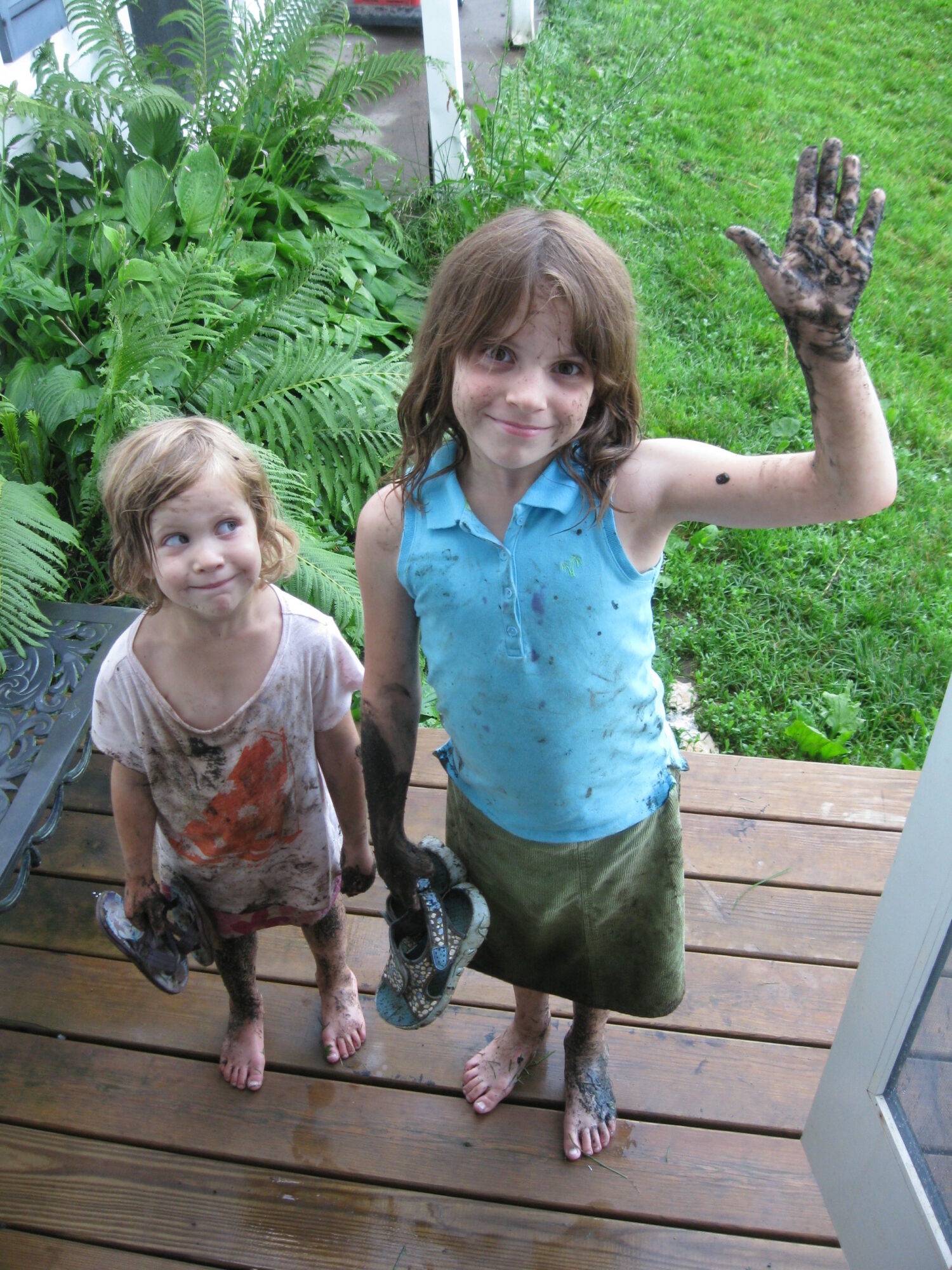Perhaps it is because we are entering the last few weeks of summer vacation and it has all slipped by a bit too fast, but I’ve been thinking a lot about farm kids lately. How are farm kids different from non-farm kids? Our own two girls are probably pretty typical of most farm kids—they are responsible for specific chores around the farm, help when they are asked, and whine just like any other child when they’ve been told they’ve had enough “screen time” for the day. Especially during the summer, ours complain they haven’t seen their friends in weeks. “Why do we live so far away from everyone else?” “Why do we live in the middle of nowhere?” “There’s nothing to DO!” and “It’s not fair!” are some of my favorite quotes of the summer. At least my children know better than to tell me they’re bored… “Boring people get bored,” I tell them and then give them a job to do.
Farm kids really aren’t all that different from non-farm kids. Sure, they learn at an early age that they play an important role in the family and the family’s way of life. They learn about life and death, where babies come from, and how weather can make or break you. They learn about responsibility and the consequences of not following directions. But they may or may not develop a good work ethic, a strong back or a fundamental respect for the world around them. They may or may not want to follow in their parents’ footsteps. If nothing else, even when their parents are working sun-up to sun-down, farm kids know their parents are there for them—always just a shout away.
Which brings me around to thinking about farm parents and how we might differ from non-farm parents? I honestly think that if you took a poll of farm parents and asked them whether or not they wanted their kids to go into farming, the vast majority would say no. Let me say that again: I don’t believe farm parents wish for their children to become farmers. Why? Because farm parents are just like non-farm parents—we want a better life for our children, to not see them struggle. We want them to discover their true calling in life—whatever that may be—and to excel at it. We want them to be happy and healthy and to not worry…none of which sounds particularly like a farmer’s job description.
This may sound unfair, especially if you know me and how much I love what we are doing here on the farm. But for anyone who has farmed, who has toiled long days for so little in return, this statement will ring true. My own parents’ feelings on the topic were painfully obvious the first time we brought them to see the farm. We hadn’t even closed on the property when we borrowed the key from the real estate agent to give them a quick tour. Mom was quiet the whole time—I knew she didn’t like old houses. She grew up on a farm herself, in an old farmhouse with all its eccentricities, and swore she’d always live in a newly constructed house once she married and moved away. Dad giggled from time to time, knowing how much work we had in front of us. It was when we got to the bathroom and discovered the two dead rats in the toilet that my mom absolutely lost it. The tears welled up in her eyes and she shook her head. Why? Why would you take all this on? Don’t you know how hard this is going to be??? Farming was not at all what she had hoped for her daughter and her young family.
I cannot blame my mother for feeling this way. My in-laws were also flabbergasted at our decision. Get a good 9-to-5 job with benefits. You’ll have your weekends off. You’ll build a 401k and eventually retire. You’ll have none of these things as a farmer.
They’re not alone. Since the end of World War II, the number of farmers in our nation has steadily declined. Farm youth have been encouraged to leave the farm, go to college and move to the cities where industry and technology have boomed and made us the richest, most powerful nation on the planet. Farming was once a common profession and viable way to make a living, but is now a virtual vow of poverty with little to no recognition for the skills required for the job.
Whatever callings my daughters discover as they grow up, I know we will have provided a wonderfully well-rounded childhood and a loving home. They’ve become expert plant identifiers, frog catchers, bird callers, and animal psychologists. They’ve excavated entire cow skeletons, can drive a skid-steer, and swing on a rope swing. They can cook. They know where their food comes from and what real food tastes like. And they have countless tales of farm life to tell their children and their grandchildren who maybe—just maybe—will want to farm, too.
